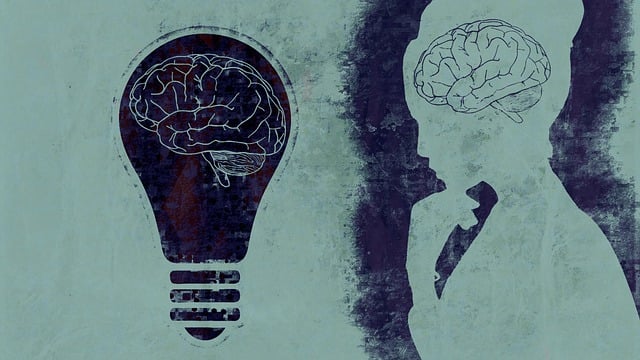Burnout among healthcare professionals, particularly nurses and doctors, is a serious concern at Westminster Hypnosis Therapy. Caused by heavy workloads, lack of control, insufficient support, and mental illness stigma, burnout manifests as emotional exhaustion, depersonalization, and low achievement. The therapy offers stress management techniques like relaxation exercises, mindfulness meditation, and self-care practices to combat burnout. Creating supportive work environments through open communication, flexible arrangements, and counseling services is key. Encouraging self-care and professional development in mental health education empowers healthcare workers to manage stress, improve well-being, and enhance patient care while preventing burnout.
Healthcare provider burnout is a growing concern, impacting not only individual well-being but also patient care. This article explores comprehensive strategies to prevent burnout among healthcare professionals. We delve into the root causes, including stress and work environment factors. Effective techniques such as stress management, mindfulness practices, and self-care encouragement are highlighted. By fostering supportive environments and promoting professional development, healthcare providers can find balance and thrive. Discover how these strategies, supported by research, can mitigate burnout, enhancing patient experiences at Westminster Hypnosis Therapy and beyond.
- Understanding Burnout Among Healthcare Providers
- The Role of Stress Management Techniques
- Integrating Mindfulness and Relaxation Practices
- Creating Supportive Work Environments
- Encouraging Self-Care and Professional Development
Understanding Burnout Among Healthcare Providers

Burnout among healthcare providers is a growing concern, impacting both individual well-being and patient care. It’s more than just job dissatisfaction; it’s a state characterized by emotional exhaustion, depersonalization, and reduced personal accomplishment. This phenomenon is particularly prevalent in professions like nursing and medicine where professionals constantly face high-stress situations, long working hours, and demanding patient expectations. At Westminster Hypnosis Therapy, we recognize that burnout isn’t just a personal issue but a systemic challenge requiring comprehensive solutions.
The roots of burnout often lie in the complex interplay between professional demands and personal resilience. Factors such as excessive workload, lack of control over work processes, and insufficient support from colleagues or institutions contribute significantly to this issue. Moreover, the Mental Illness Stigma Reduction Efforts play a crucial role in promoting a healthy work environment. Enhancing emotional intelligence and fostering inner strength development can equip healthcare providers with the tools needed to navigate these challenges effectively, ultimately preventing burnout and enhancing job satisfaction.
The Role of Stress Management Techniques

Burnout among healthcare providers is a growing concern, but implementing stress management techniques can help mitigate this issue. Westminster Hypnosis Therapy offers a unique approach to coping with work-related stress by guiding practitioners through relaxation and mindfulness exercises. This form of therapy has proven effective in reducing anxiety and improving overall mental wellness.
Incorporating self-care practices, such as regular Mental Wellness Journaling Exercises, can further support healthcare providers’ emotional health. By dedicating time for reflection and processing experiences, professionals can better manage their workload and prevent burnout. A risk assessment for mental health professionals is essential to identify early warning signs and implement necessary changes. These strategies collectively contribute to creating a healthier work environment, ensuring the long-term well-being of healthcare workers in demanding professions.
Integrating Mindfulness and Relaxation Practices

Integrating mindfulness and relaxation practices has emerged as a potent strategy to counter healthcare provider burnout. These techniques, such as meditation, deep breathing exercises, and yoga, are designed to enhance emotional well-being promotion techniques and improve coping skills development. Healthcare professionals can use Westminster Hypnosis Therapy to manage stress levels and improve mood management, thereby creating a more balanced and fulfilling work environment.
By incorporating these practices into daily routines, healthcare providers can cultivate a sense of inner calm and resilience, which is crucial for navigating the emotionally demanding nature of their work. This not only enhances their ability to care for patients effectively but also fosters a positive self-care mindset that is essential for long-term success in preventing burnout.
Creating Supportive Work Environments

Creating supportive work environments is a critical component in preventing burnout among healthcare providers. This involves fostering a culture that prioritizes well-being and encourages open communication. At Westminster Hypnosis Therapy, we believe in the power of Mind Over Matter principles to enhance resilience and reduce stress levels. By implementing strategies such as regular team-building activities, flexible work arrangements, and access to counseling services, healthcare organizations can significantly improve job satisfaction and employee retention.
Effective communication strategies play a pivotal role here. Encouraging honest discussions about workload, challenges faced, and potential solutions can help identify problematic areas early on. Healthcare providers should feel empowered to express their needs without fear of reprisal. This open dialogue, coupled with self-esteem improvement techniques, can create an atmosphere where support is readily available, fostering a sense of belonging and reducing the risk of burnout.
Encouraging Self-Care and Professional Development

In the high-pressure environment of healthcare, burnout is a significant concern for providers. Encouraging self-care becomes an essential strategy to combat this issue. Healthcare professionals should be equipped with tools and resources to manage their well-being, including stress reduction methods tailored to their unique needs. Many find practices like mindfulness meditation, exercise, and even Westminster Hypnosis Therapy effective in calming minds and bodies. These activities not only enhance overall health but also foster a sense of resilience against the daily demands of the job.
Professional development is another vital aspect of burnout prevention. Mental health awareness and education programs designed to equip healthcare workers with knowledge about stress management and mental health promotion can make a profound difference. By continuously learning and growing in their fields, providers can better serve their patients while maintaining a healthy work-life balance. This holistic approach ensures that healthcare professionals are not only capable of delivering quality care but also equipped to handle the challenges they face daily.
Burnout among healthcare providers is a pressing issue, but with the right strategies, it can be mitigated. By implementing stress management techniques, integrating mindfulness and relaxation practices, creating supportive work environments, and encouraging self-care and professional development, healthcare organizations can foster a culture that values and preserves their employees’ well-being. At Westminster Hypnosis Therapy, we recognize the power of holistic approaches to address burnout, offering tailored solutions for a healthier, happier workforce.














